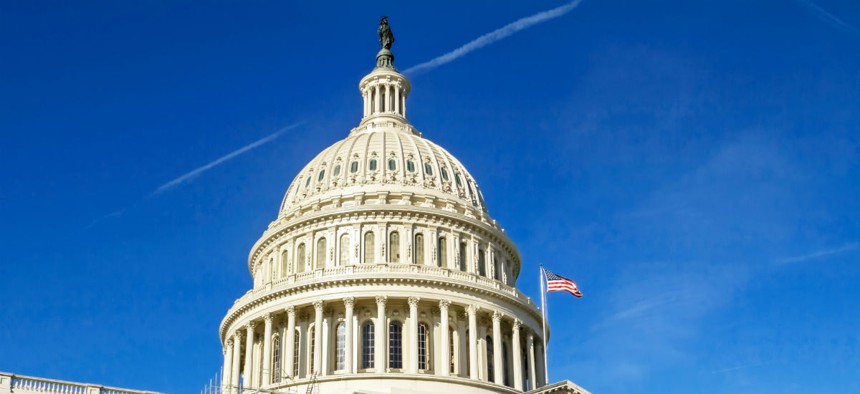
By M DOGAN / Shutterstock.com
Senate Approves Spending Package With Pay Raise, Setting Up Fight With House
Trump told Rush Limbaugh on Wednesday a government shutdown would be "a great campaign issue," further complicating the prospects for a spending bill.
The Senate on Wednesday voted 92-6 to approve a $154.2 billion spending bill that includes a 2019 pay raise for civilian federal employees, setting up a conflict with the House and the Trump administration.
The proposal to increase federal workers’ pay by 1.9 percent next year was included within a "minibus" appropriations bill (H.R. 6147) funding the Interior Department, Environmental Protection Agency, Agriculture Department, Housing and Urban Development Department, Transportation Department, and financial services and general government agencies for fiscal 2019. It survived more than a week of debate and negotiations by lawmakers on the Senate floor.
But the pay raise still faces headwinds. The Trump administration has proposed a pay freeze for all civilian federal workers for next year, and the House effectively endorsed the pay freeze in its version of the spending package. The administration has suggested that a $1 billion interagency workforce fund to be used in pilot programs for performance-based pay would help replace the across-the-board pay hike, but neither chamber has included money for that fund in appropriations bills.
Further complicating matters is the fact that President Trump has said repeatedly in recent days that he would refuse to sign spending bills—and trigger a government shutdown—if Congress does not approve additional funding for his proposed wall along the U.S.-Mexico border, as well as drastic cuts to the amount of legal immigration into the United States.
On Wednesday, Trump told talk radio host Rush Limbaugh that he thought a shutdown would be "a great campaign issue." But he appeared to immediately walk that back, noting that he does not want to "disappoint" other members of his party who disagree with him on this.
Last week, the White House issued a statement announcing its opposition to the pay raise, although it stopped short of issuing a veto threat.
“Across-the-board pay increases have long-term fixed costs, yet fail to address existing pay disparities, or target mission critical recruitment and retention goals,” the administration wrote last week. “As proposed in the administration’s request for a workforce fund, the administration continues to support performance-based pay that is strategically aligned toward recruiting, retaining and retraining high performers and those in mission-critical areas.”
The next step in the process is for House and Senate conferees to negotiate a compromise version of the spending bill. The House is in recess for all of August.







